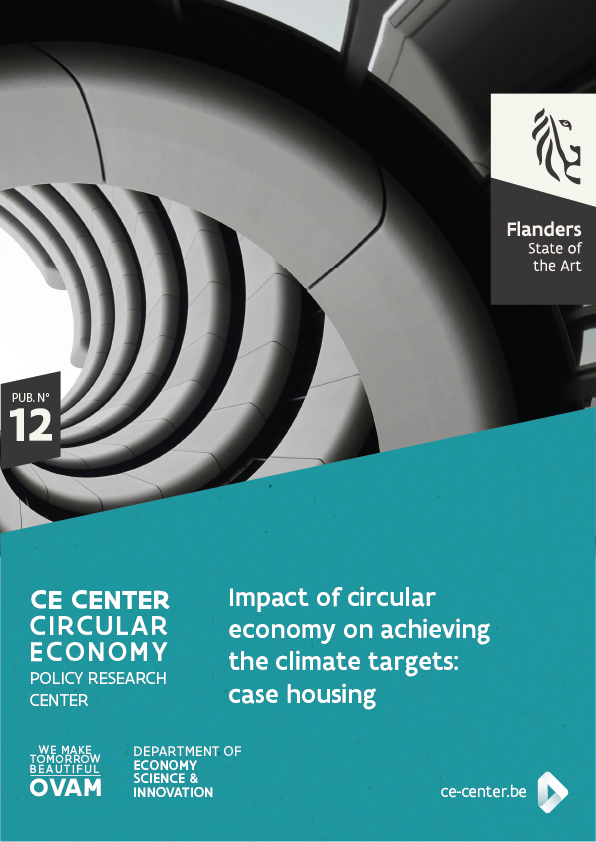12. Impact of circular economy on achieving the climate targets: case housing
 In this report the contribution of circular economy in reaching the climate goals has been assessed for residential housing. The goals in the draft Flemish climate policy plan consider the territorial emissions, i.e. the operational phase of housing. In reaching the goals of the plan, the material and carbon footprints of its implications on building and renovation need to be considered as well.
In this report the contribution of circular economy in reaching the climate goals has been assessed for residential housing. The goals in the draft Flemish climate policy plan consider the territorial emissions, i.e. the operational phase of housing. In reaching the goals of the plan, the material and carbon footprints of its implications on building and renovation need to be considered as well.
The material footprints of building new dwellings and of renovating existing dwellings are 60.5 and 26.1 Mton, respectively, while 48.1 Mtons of waste will be produced. The carbon footprint of renovation, with 42.1 Mton CO2-eq., is slightly more than twice that of construction of new dwellings, with a value of 20.5 Mton CO2-eq.
The total renovation effort till 2050 will emit the equivalent of 57% of the territorial emissions of Flanders for the year 2017. In order to fulfill the housing need with less materials and impacts, one scenario is to reduce the size of new dwellings and to split up larger existing dwellings. This leads to a reduction of the material and carbon footprint with 8.1% and 4.0%, respectively.
Another scenario is to focus on construction materials, by applying alternative construction methods or building materials and increasing the use of recycled and reused materials from renovation waste. This leads to a reduction of the material and carbon footprint with ca. 20%. Hence the potential impact of circular economy is large, and can be further increased for instance via enhanced building material selection or modular building.

.png)






